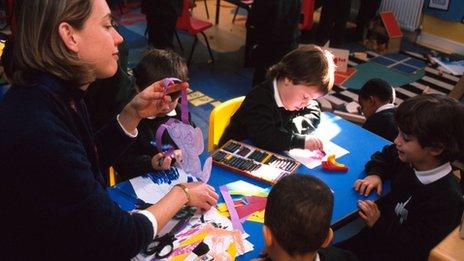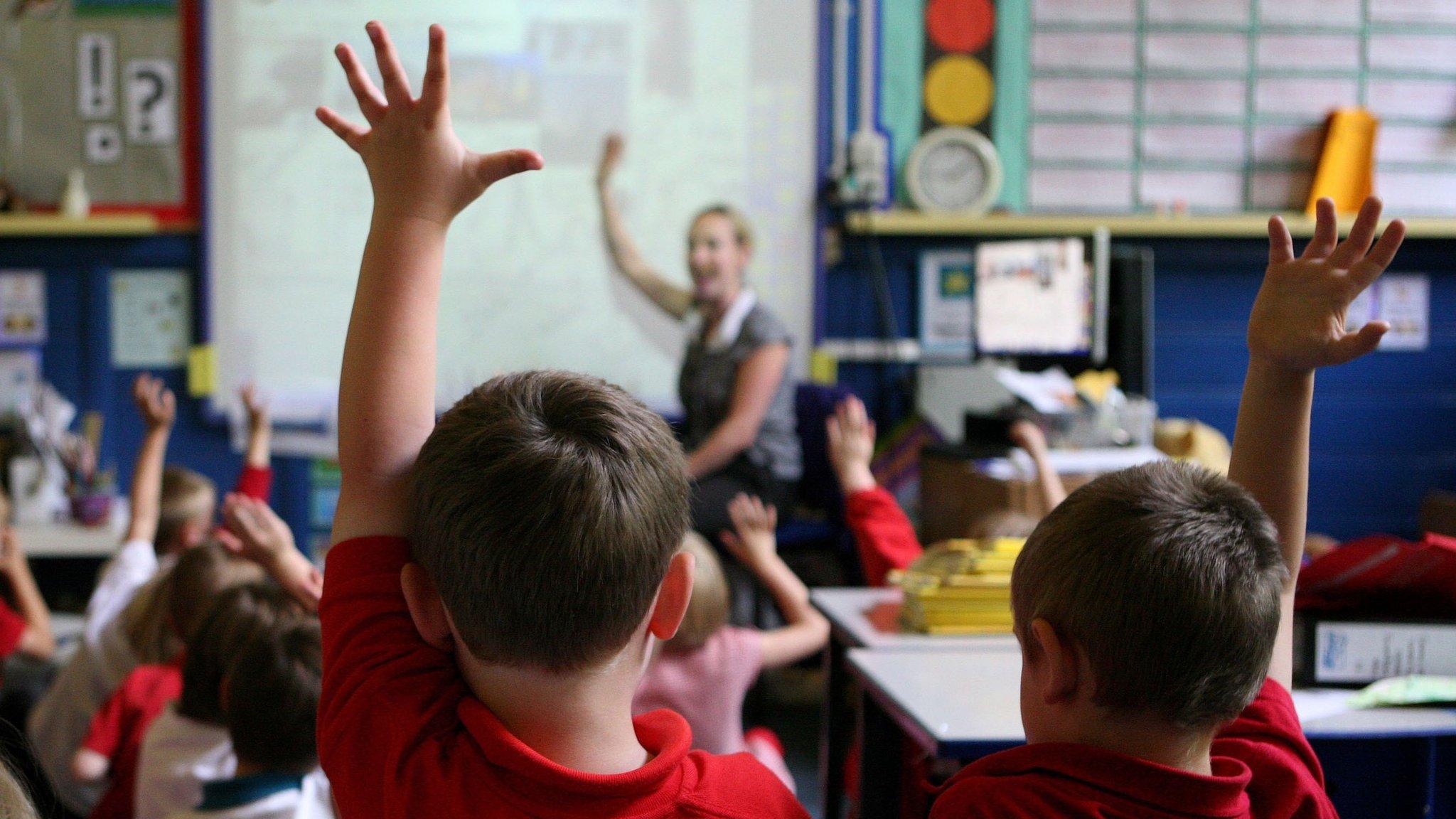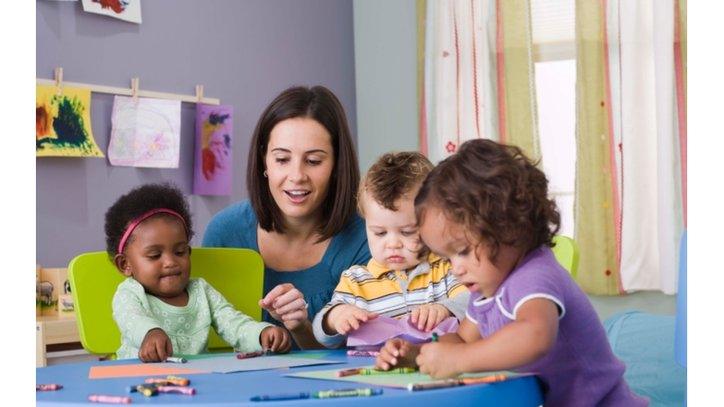Benefits of free nursery education 'not lasting'
- Published

The poorest children benefited the most
Free part-time pre-school education in England has not led to lasting educational benefits, a study suggests.
The greatest impact, it indicates, was on the poorest children, whose early education foundation stage profile (FSP) scores were boosted by 15 points.
Children's FSP scores overall were boosted by 2% to 89.3, but this impact had declined by age seven and 11.
And for every six children given a free place by the scheme, only one had started nursery because of it.
The study, by the University of Surrey, University of Essex and the Institute of Education, focused on the free early education entitlement between 2002 and 2007.
'Anticipated gains'
On average, it indicated, free nursery places had had a small beneficial impact at age five, but the size of this effect had declined by age seven and disappeared by age 11.
However, the research also suggested children who had taken up a nursery place just because it had been free - the poorest children - had seen significant improvements to their FSP at age five.
The FSP is a set of measures of a child's early education ability and covers areas such as communication, understanding of early reading and number work.
But this did not close the gap in attainment between rich and poor children in the longer term, the researchers say.
"While previous research has suggested that early education is key to long-term attainment, our research has shown that the free entitlement did not deliver the anticipated gains," said Dr Jo Blanden, senior lecturer in economics at the University of Surrey.
"On the face of it, our results cast some doubt over the value for money of universal early education."
Dr Blanden said more than 80% of the children taking up free places would probably have gone to nursery anyway, adding that there had been no educational benefits in the longer term.
"This might be because the extra pre-school places were not of high enough quality," she added.
'Poorest children'
"Recent research shows that state-run nurseries are of more consistent quality, whereas this policy encouraged greater use of privately run places.
"Alternatively, it could be that primary schools do very well at helping children reach their potential, meaning that pre-school experience is not important."
Dr Birgitta Rabe, senior research fellow at the Institute for Economic and Social Research, University of Essex, said: "It is tempting to say that the money would have been better spent on the poorest children.
"However, the policy's universalism may have benefits if it encourages greater take-up of provision among children from more disadvantaged backgrounds or if it mixes children from different backgrounds in the same early education settings."
Separate research by the Institute of Fiscal Studies looking at the policy's impact on work patterns indicated it had helped a small number of women into work.
The analysis suggested most families would have used childcare anyway, so the free entitlement had represented a discount on what they had already been paying.
But a quarter of the mothers whose youngest child had gone to nursery for the first time because of the scheme had entered work, it suggested.
Neil Leitch, chief executive of the Pre-school Learning Alliance, said the findings suggested the introduction of free early-education places had had a limited impact on outcomes, because most children accessing places would have done so anyway, even if the places had not been free.
But he added: "This is not the same as saying that early education itself has a limited impact, and should not be misinterpreted as such."
- Published3 April 2014

- Published30 May 2012
